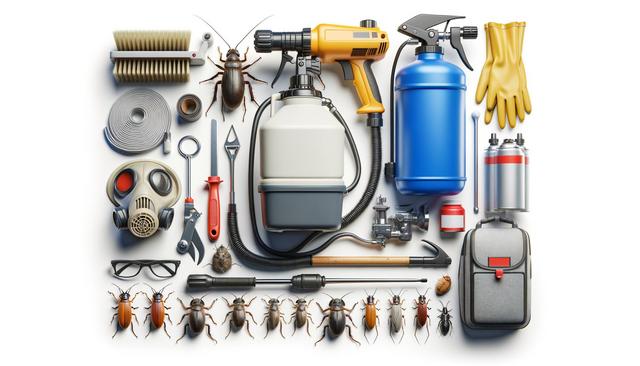Understanding the Scope of Pest Control Jobs
The pest control industry covers a wide range of roles and responsibilities that go beyond simply dealing with insects or rodents. Professionals working in this field play a vital part in protecting homes, businesses, and public spaces from health hazards and structural damage. Careers in this sector often include positions such as field technicians, inspectors, wildlife control specialists, and fumigation experts. Some individuals may focus on specialized residential and commercial services, depending on the needs of their clients and their own skill sets. The variety of roles available makes pest control an appealing option for those looking for hands-on, problem-solving careers.
Working in pest control can involve different types of environments, from urban apartment buildings to rural agricultural settings. Each job may require different tools, techniques, and safety measures, adding variety to the workday. As a result, many professionals enjoy the dynamic nature of their responsibilities, which can keep the job engaging and rewarding over time.
The Top 3 Skills Needed for Pest Control Jobs
To succeed in the pest control industry, there are several core skills that aspiring professionals should develop. The top 3 skills needed for pest control jobs include:
- Problem-solving: Identifying the source of an infestation and determining the most effective treatment strategy requires analytical thinking and adaptability.
- Attention to detail: Carefully applying treatments and monitoring results is critical to ensure both safety and effectiveness.
- Communication: Explaining procedures to clients and providing advice on future prevention helps build trust and long-term relationships.
In addition to these core competencies, physical stamina and a willingness to work in different weather conditions or confined spaces are also important. Pest control work can be physically demanding, so professionals should be prepared for active days that may include climbing, crawling, or lifting equipment.
How to Get Certified for Pest Management Roles
Getting started in this field typically requires some form of licensure or certification, depending on local regulations. Understanding how to get certified for pest management roles is a key step for anyone entering the industry. Most regions require candidates to complete a combination of classroom training, fieldwork, and a licensing exam. These programs often cover topics such as pesticide safety, species identification, and integrated pest management (IPM) strategies.
Licensed exterminator training programs are available through a variety of channels, including:
- Technical colleges and vocational schools
- Online certification courses
- State or provincial pest control associations
Completing these programs not only ensures you meet legal requirements but also prepares you to handle advanced pest control techniques in both residential and commercial settings. Continued education may be necessary to maintain certification, especially as new technologies and regulations emerge.
What to Expect from Daily Tasks in Pest Control
Every day in pest control brings new challenges and situations. For those wondering what to expect from daily tasks in pest control, it typically includes a mix of inspection, treatment, and client interaction. A technician may begin the day by reviewing appointments and preparing the necessary equipment and chemicals. On-site, tasks may include:
- Inspecting properties for signs of pests or damage
- Identifying pest species and assessing infestation levels
- Applying treatments using sprays, baits, or traps
- Educating clients on preventative measures
- Documenting service details and follow-up recommendations
While some tasks are routine, others may require creative thinking and flexible solutions. For example, removing a wasp nest from a high rooftop or dealing with persistent rodent activity in a commercial kitchen can present unique challenges. Job satisfaction often stems from resolving these issues effectively and helping clients feel secure in their environments.
High-Demand Pest Control Career Paths
The pest control industry continues to grow, driven by increasing awareness of health standards and the need for pest management in both urban and rural areas. There are several high-demand pest control career paths that offer long-term employment opportunities and potential for advancement. Some of the most sought-after roles include:
- Commercial pest control specialists for businesses and food service establishments
- Wildlife removal professionals managing non-insect pests like raccoons or birds
- Termite control experts focused on structural preservation
- Bed bug treatment technicians trained in heat and chemical solutions
Many of these roles require additional training and certification, which can lead to higher pay and increased job responsibility. As pest control companies expand their offerings, professionals who can provide specialized residential and commercial services are likely to be in even greater demand. Whether you’re new to the field or looking to transition into a more focused role, there are numerous paths to explore based on your interests and experience.
Conclusion: Building a Career in Pest Control
Pest control jobs offer a promising pathway for individuals seeking stable, hands-on careers with room for growth. From learning how to get certified for pest management roles to understanding the top 3 skills needed for pest control jobs, there are clear steps to entering and succeeding in this field. With daily tasks that vary and high-demand pest control career paths available, it’s a profession that combines technical knowledge with practical problem-solving. Whether you’re interested in general pest control or specialized residential and commercial services, the industry provides meaningful work that makes a real difference in people’s lives.




Leave a Reply